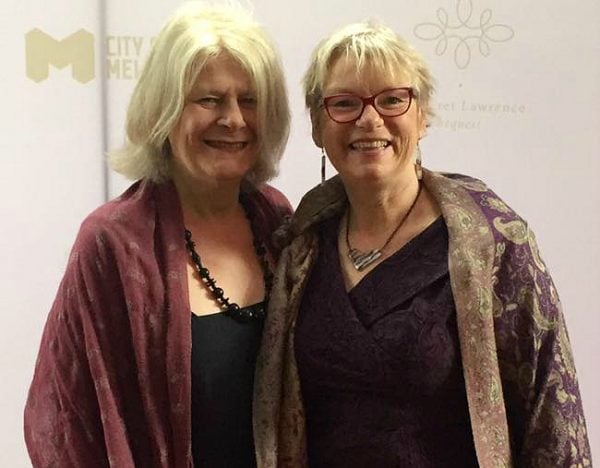Greens Senator Janet Rice has been married since 1986. Like most long-term relationships, hers has presented its challenges. But the most significant in the Victorian’s 32-year union is also the most unique.
In 2002, her spouse came out as transgender.
In the years since, the relationship between the 57-year-old and her wife, renowned climatologist Penny Whetton, has monumentally shifted, but beneath it all has been a solid, familiar foundation.
“We love each other, and having been through both a heterosexual marriage and a same-sex marriage I know that they’re one and the same,” Senator Rice told Mamamia.
Yet, in transitioning, Penny Whetton was forced to make a choice no one should: that between her marriage and formal recognition of her gender identity.
This is because of a bizarre facility in state and territory law that prevents married people from applying to legally change their gender – that is, to have it altered on their birth certificate.
That basic right is currently only afforded to single trans people, meaning those who transition while married must temporarily divorce if they wish their records to reflect their true self.
The United Nations Human Rights Committee ruled this kind of ‘forced divorce’ legislation to be a violation of international human rights law in 2017, after a married trans woman from NSW took her complaint to the global watchdog.

